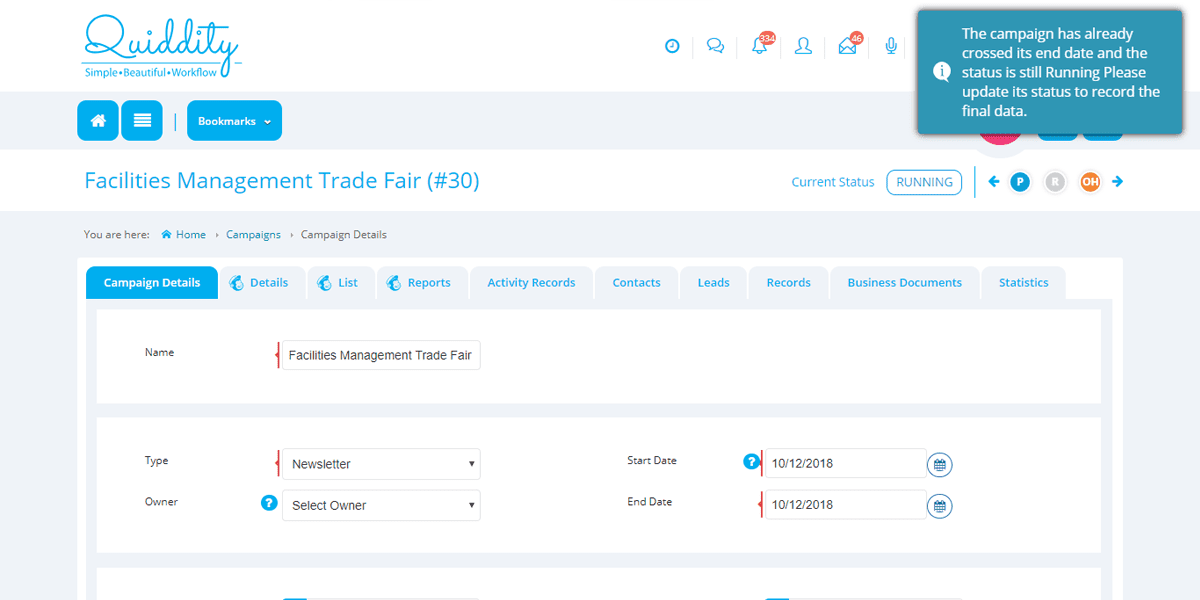Seven powerful small business trends to welcome in 2019
The world moves fast. Businesses move fast. Digital media moves extremely fast. It is far too easy to allow ourselves to be constantly blown from one trend to the next. – Shawn Amos
Business processes don’t happen in a vacuum and hence it is obvious that business trends will always continue to change. The new year unlocks several trends and predictions for every sector whether it is corporate, fashion, retail, manufacturing or others. These trends are announced and available in so much abundance that small businesses may miss out on certain important ones. Well, we have done the homework for you! Read below to get ready information on some trends that will have a substantial impact on small businesses and their day-to-day working:
1. Adapting to the modern customer will take priority
Personalisation is rampant everywhere today. Cold calls and generic campaigns are now obsolete. Small businesses need to offer high quality, engaging content that personally addresses the needs of their customers. In 2019, businesses will need to focus on making personalisation priority. Given that customers have many options to choose from, they will gravitate towards businesses that will offer them a personalised touch along with fast and seamless delivery.
Trends may come and go, but the customer experience will always matter.
2. A CRM tailored for small business will flourish
Small businesses still looking to invest in a CRM will now invest in it for better management of their workflows and data. CRM solutions in itself will undergo several changes in the year 2019. The developments will be inclusive of text, voice and face recognition. The voice commands will dominate the CRM landscape and with utilisation of the same, professionals will be able to retrieve simple information from complex data. Data management will prove to be very useful for small businesses to drive success.
3. Cognitive technologies will drive marketing and sales
Artificial intelligence (AI), machine learning (ML) and other cognitive technologies will modify the manner in which normal marketing and sales is done. AI will open up several avenues in the new year with an increase in its application across all industries. Discovering new market opportunities, generating leads, finding the right prospects as well as creating newer ways of acquiring a customer will all be accomplished with AI. Customers will learn to adapt to this new technology and gain from it immensely, given how it can analyse huge chunks of data and give great insights. Predicting the future of the business and creating well-researched strategies for business growth will hence become priority for a small business.
4. Security will matter
Until recently, small businesses considered themselves protected from data hacks and cyberthreats. Given the rise of cyberattacks, no business is secure and hence security of a small business too will be important. Keeping clients’ information private and confidential (GDPR!) will give a customer the confidence to work with a small business and help build trust. Building a loyal customer base will require small businesses to invest in robust security solutions.
5. More employees will go remote
The workforce of the future is now going remote and with the gig economy even small business have the option to employ skilled labour while keeping their costs down. Given this scenario, small businesses will need to invest in collaboration tools that will enhance team productivity. A CRM for small business which can bring together the entire organisation, including employees and departments with different objectives will prove to be very useful in providing the much needed collaboration along with keeping up with the cultural shift.
6. Workflow automation will add to employee productivity
Small businesses usually find it difficult to define and develop a workflow given that many of their employees also juggle multiple roles. Workflow automation will greatly benefit such small businesses where routine administrative tasks can be managed enabling the workforce to focus on important and productive tasks. With plenty of options available for workflow automation tools including some of the all-encompassing CRM solutions, small businesses have to be careful and choose a software that is flexible enough to adapt to the evolving market conditions.
Last but not the least….
7. Personal relations will always matter
Yes, technology will continue to touch every aspect of our life, but we can never forget that it’s the relationships that we build that drive business and commerce. Businesses will continue to connect with their customers in person and work on the trust that’s so important to strengthen a relationship. While the emerging technologies will continue to give great insights into the customers, businesses will need to improve on better ways to stay in touch with customers and make time for talks and in-person meetings. While automating processes, one cannot ignore the power of the personal touch.
The market is evolving at a rapid rate and the trends will continue to influence the working patterns. No matter what the trends are, the truth is that the user experience will continue to dominate them. CRM will play a pivotal role in helping small businesses redefine customer experience. To survive on this competitive landscape, businesses can invest in an effective CRM solution built specifically for small businesses, such as Quiddity. To know which Quiddity features will help businesses sustain the changing demands of the market and customers, register for a free trial here.

Brendan works as a Product Manager at Quiddity, an amazing workflow and customer relationship management tool for small businesses. He has a passion for design and problem solving and loves to share knowledge and collaborate with others.



Comments are closed.